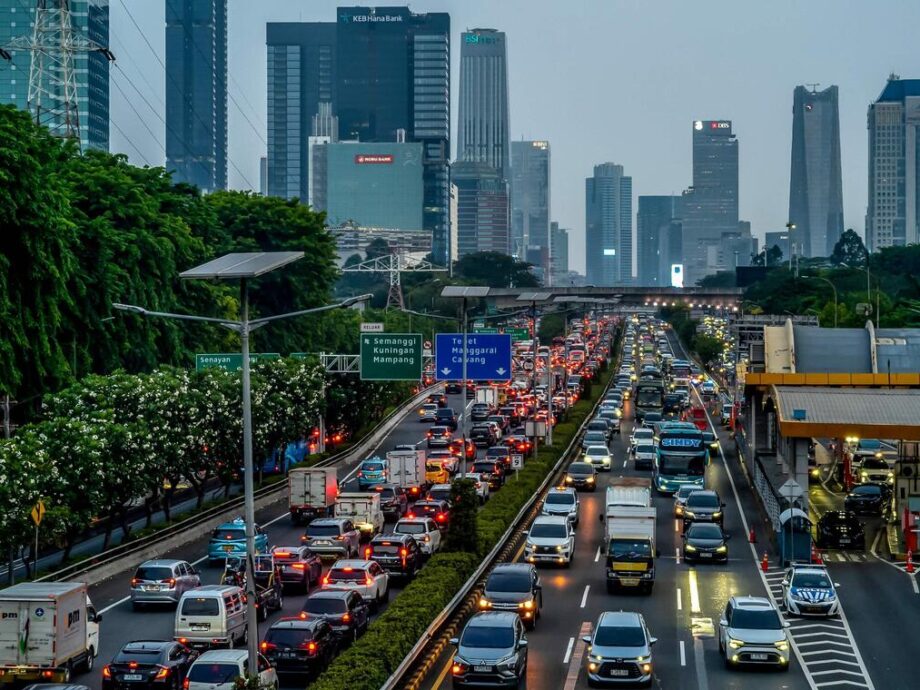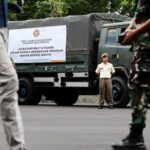Why Jakarta is saying stop the sirens
Jakarta residents are pressing officials to end the routine clearing of roads for government convoys that sweep through traffic with sirens and flashing rotators. The rallying cry stop tot tot wuk wuk, an onomatopoeic nod to the sound of police patrols, has become a plain message against special treatment. For many drivers, the siren has turned into a symbol of an unequal road culture, where everyday commuters wait while convoys move freely. Anger over hours in congestion has fused with broader criticism of privileges for those in power. The mood sharpened after a wave of unrest across Indonesia tied to lawmakers pay and housing allowances. Demonstrations turned deadly in late August, with at least six people killed, and public scrutiny of elite perks spilled back onto the streets of the capital.
- Why Jakarta is saying stop the sirens
- What tot tot wuk wuk means
- Jakarta gridlock and a culture of convoys
- From road frustration to national protests
- Government response and the politics of privilege
- What the law says about priority on Indonesian roads
- How the movement is spreading
- What happens next for Jakarta commuters
- Key Points
The phrase captures a daily scene. Escort teams (Patwal) often arrive first, lights strobe on lead motorcycles and cars, and motorists are told to pull over. The grassroots call argues that sirens and strobes should be used only for true emergencies like ambulances and fire trucks. Many residents are also urging drivers not to obey orders to make way for non emergency convoys. The message has spread through stickers on cars and motorbikes that say, “Except ambulances and fire trucks, stop the strobes and sirens. You live on our taxes.”
Authorities are signaling a shift. The National Police Traffic Corps, known as Korlantas, has ordered a temporary halt to siren use by government convoys unless there is an urgent situation. Escorts for state duties continue, but officers are being told to reserve sirens for emergencies and to prevent misuse. A senior official urged public servants to avoid abusing road protocol and pointed to President Prabowo Subianto, who is often seen moving without sirens. Policy advisers say clearer rules and proportionate use would help rebuild trust in both traffic management and public institutions.
What tot tot wuk wuk means
This chant is a piece of Jakarta street language that has gone viral. It mimics the pulsing tone of escort sirens that cut through the city soundscape, and it turns that noise into a protest slogan. The phrase is catchy and simple to read on stickers, banners, and social media posts. It also draws a sharp line between emergency response and non emergency privilege, tapping into a long held view among commuters that the lane you get should not depend on your title.
How police escorts work
Escort teams in Indonesia, often referred to locally as Patwal, are trained to manage convoys on busy roads. They use sirens, rotators and hand signals to hold cross traffic, open gaps and, when necessary, create brief contra flow lanes so vehicles in the convoy can pass. Under Indonesian traffic rules, emergency vehicles, police on duty, and certain state official convoys can be given priority. In practice, that priority can mean stopping lines of cars at intersections, closing ramps or re routing traffic on short notice. The protocol was designed to protect high risk officials and to ensure continuity of government work, especially for time critical state duties.
Why escorts became a flashpoint
Jakarta’s traffic is relentless, and a convoy sweeping past while everyone else waits can feel like a daily reminder of unequal treatment. Videos of escorts ordering motorists aside or scolding drivers who hesitate have stoked resentment. One incident widely criticized earlier this year involved an escort linked to a car with the RI 36 license plate, where an officer’s conduct toward a taxi drew a public warning from top officials. For many residents, such episodes confirmed what they already felt: too many convoys behave like emergencies even when the urgency is unclear.
Jakarta gridlock and a culture of convoys
Greater Jakarta is one of the world’s largest urban regions, with millions pouring onto the roads every day from surrounding cities. Congestion is shaped by commuting patterns, construction, and a limited street network relative to the volume of vehicles. In this setting, a convoy that breaks the traffic rhythm has an outsized effect. When escorts halt intersections repeatedly, tailbacks ripple far beyond the immediate route. Drivers stuck at an onramp or under a flyover often do not know why the flow has stopped, only that it happens often and that it seems to benefit officials.
For people heading to work, school or hospital appointments, the feeling of unfairness is as strong as the lost minutes. The use of contraflow and rolling roadblocks for non emergency movement has grown into a flashpoint because it intersects with bigger debates about public service, accountability, and who bears the cost of special treatment. The city’s own efforts to improve transit and discipline traffic can feel undermined if convoys are seen to ignore the rules that apply to everyone else.
From road frustration to national protests
Public anger on the streets of Jakarta did not grow in isolation. It followed a nationwide controversy over benefits for members of parliament, including a monthly housing allowance of 50 million rupiah for each of the 580 lawmakers. The figure is close to ten times the minimum wage in the capital and ignited protests that started early in the week and spread across major cities. Clashes erupted outside parliament buildings, and crowds targeted local government offices. The unrest amplified criticisms of elite privileges at a moment when many families are struggling with costs and job insecurity.
Tensions spiked after a 21 year old ride hailing driver, Affan Kurniawan, was killed in a police action during protests in Jakarta. Footage of a police vehicle striking him circulated widely, and seven officers were detained for investigation. The death toll rose as violence broke out in several cities, including Yogyakarta and Makassar. Authorities deployed large numbers of police and military, set up checkpoints and posted snipers at key locations. Schools and universities in the capital temporarily shifted to online classes, and many civil servants worked from home to reduce congestion and avoid potential flashpoints.
In a national address from the presidential palace, President Prabowo Subianto urged calm, pledged to act on parliament perks and promised a thorough review of events that led to the deaths. He said the government respects peaceful dissent while warning against rioting and destruction of public facilities.
“The rights to peaceful assembly should be respected and protected.”
That message, which was paired with a promise to investigate Kurniawan’s death and to assist his family, set expectations for quick policy changes on lawmakers’ benefits and for tighter oversight of police conduct during protests.
Government response and the politics of privilege
Facing public pressure, the president said parties in parliament agreed to revoke a series of perks and to suspend overseas work trips for lawmakers under a new moratorium. Leaders signaled that some allowances would be cut immediately starting Monday. Party chiefs also discussed sanctions for errant members of parliament. The police detained seven officers linked to the deadly van incident, and top officials said an ethics process would proceed while criminal investigations continue. The government has called for dialogue with students, workers and community leaders to channel complaints and proposals through formal forums.
On Jakarta’s roads, Korlantas ordered tighter control of escorts and sirens, saying the devices should be reserved for urgent state duties and emergencies. New guidelines are being drafted to clarify who can request escorts, what qualifies as urgent, how routes are chosen, and how any misuse will be handled. That review matters for more than symbolism. If enforced consistently, it could lower the number of rolling stops across the city and reduce the sense that rules bend for the powerful.
What the law says about priority on Indonesian roads
Indonesian traffic law gives priority to certain vehicles. Ambulances, fire trucks, and police responding to incidents get the clearest right of way, followed by escort teams moving a protected convoy for safety or urgent state business. In daily practice, a convoy might include several motorcycles, a lead car, and a tail car. The team uses sirens and hand signals to hold side streets and to pace the flow so the convoy remains intact.
The hardest part is the gray area. Officials often travel for scheduled events that are important to their work, but not necessarily urgent in the emergency sense. That is when public frustration spikes because the privilege feels routine. Another problem is imitation. Private vehicles sometimes add illegal strobes or siren devices to cut through traffic, which erodes public trust and confuses drivers who cannot tell a real escort from a fake one. Korlantas has acknowledged these problems and is working on clearer, public facing rules with strict penalties for misuse.
How the movement is spreading
The stop tot tot wuk wuk call has moved quickly from online posts to the roads of the capital. Hashtags and short videos highlight everyday scenes of convoys moving through narrow streets while ordinary drivers wait. The sticker campaign has made the message unavoidable at traffic lights and parking lots. Some community groups have begun to hold teach ins about traffic rights and responsibilities, stressing that ambulances, fire trucks and police on duty must retain priority.
There are also concerns about safety and legality. Interfering with an official escort can be dangerous and can violate traffic law. Many activists say the point is not confrontation, but to pressure leaders to limit privileges and to create clear standards for when escorts are needed. Civil society groups are urging authorities to publish criteria for urgency, log convoy use, and report misuse publicly. Those steps, they argue, would turn a viral slogan into measurable change.
What happens next for Jakarta commuters
Real change will depend on enforcement. If siren use is limited to emergencies and escort routes are narrowed, commuters should experience fewer rolling stops and fewer surprise closures. Technology can help. Pre planned routes, staggered arrival times, and coordination with traffic control centers can reduce the need for convoys to slice through peak hour congestion. Publishing weekly reports on convoy deployments would give the public a way to check whether standards are being met.
Jakarta’s long term fixes still lie in better public transit and street management. The city is adding metro and light rail lines and expanding bus corridors. Clear rules for convoys would complement those efforts by reducing ad hoc roadblocks that undermine predictability. Offices can also adjust schedules to avoid peak traffic for official movements. If the rules become clear and consistent, the siren debate could ease, and the focus can return to improving mobility for everyone in the city.
Key Points
- Stop tot tot wuk wuk has become a rallying cry in Jakarta against the routine use of sirens and escorts for non emergency convoys.
- Korlantas has temporarily restricted siren use for government convoys to urgent situations while drafting new guidelines.
- Anger over VIP road privileges intersects with nationwide protests against lawmakers’ perks, including a 50 million rupiah monthly housing allowance.
- At least six people were killed during recent unrest, and seven police officers were detained after the death of Affan Kurniawan in Jakarta.
- President Prabowo Subianto pledged to cut some parliamentary allowances and suspend overseas trips, while calling for calm and dialogue.
- Stickers and social media posts urge drivers to reject non emergency sirens, while respecting ambulances, fire trucks and police responding to incidents.
- Officials say enforcement and clear criteria for urgent escorts will be key to restoring public trust on Jakarta’s roads.












